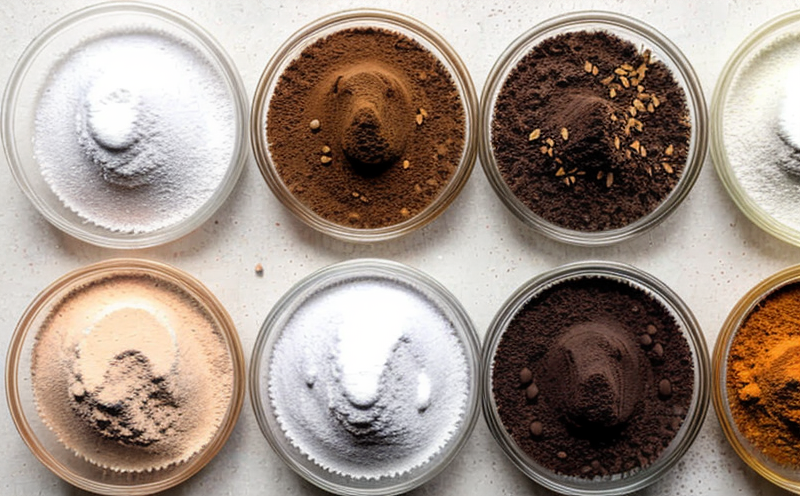EN 13897 Sucralose Residue Testing in Energy Drinks
The European Standard EN 13897 specifies methods for determining sucralose residues in food and feed products. This service is crucial for ensuring compliance with regulatory limits set by authorities such as the European Food Safety Authority (EFSA). Compliance is essential to avoid potential legal issues, safeguard consumer health, and maintain market integrity.
Sucralose is an artificial sweetener widely used in the production of energy drinks due to its non-caloric nature. However, improper usage or excessive residues can pose risks if consumed regularly. This service ensures that sucralose levels are within acceptable limits as defined by regulatory bodies like EFSA and national food safety agencies.
The testing process involves several steps:
- Sampling: A representative sample is taken from the energy drink batch to ensure accurate results.
- Sample Preparation: The sample undergoes extraction using appropriate solvents followed by filtration.
- Analytical Procedure: High Performance Liquid Chromatography (HPLC) with Diode Array Detection or Gas Chromatography-Tandem Mass Spectrometry (GC-MS/MS) is used to quantify sucralose residues. These methods provide precise and accurate measurements necessary for compliance.
Our laboratory adheres strictly to EN 13897 guidelines, ensuring reliable results that are accepted by regulatory bodies worldwide. By choosing this service, you ensure your products meet stringent quality standards and comply with international regulations.
Customer Impact and Satisfaction
The impact of sucralose residue testing extends beyond just compliance; it significantly enhances the reputation and market presence of energy drink manufacturers. Consumers trust brands that demonstrate commitment to high-quality products free from harmful additives. By providing accurate test results, we help our clients build credibility and trust with their customers.
Our service also supports quality management processes by offering detailed reports which highlight areas for improvement if necessary. This proactive approach allows companies to take corrective actions promptly, thereby maintaining consistent product quality.
Customer satisfaction is paramount in our operations. We aim to deliver not just accurate tests but also timely and transparent communication throughout the testing process. Regular updates on progress combined with clear explanations of findings fosters strong relationships between us and our clients.
Environmental and Sustainability Contributions
The pursuit of sustainability in food and feed production is a global priority. By adhering to strict standards like EN 13897, we contribute positively towards environmental conservation efforts. Reducing sucralose residues helps minimize waste streams associated with overuse or improper disposal.
- Reduction in chemical runoff: Properly controlled usage of sucralose prevents its leaching into water bodies where it could disrupt ecosystems.
- Promotion of resource efficiency: Ensuring optimal use of ingredients reduces overall consumption and supports sustainable practices within the industry.
Our commitment to sustainability aligns with broader goals set forth by international organizations such as ISO 14001, promoting a responsible approach towards environmental stewardship in all aspects of our operations.
Competitive Advantage and Market Impact
In today’s competitive market, maintaining compliance is more than just following regulations; it's about staying ahead. By offering EN 13897 sucralose residue testing services, we give our clients a significant edge over competitors who may not adhere to these stringent standards.
Compliance with regulatory requirements enhances brand image and builds customer confidence in the quality of products offered. This can lead to increased market share and better positioning within competitive landscapes. Furthermore, early detection of potential issues allows companies to address them proactively, preventing costly recalls or reputational damage.
The ability to provide accurate data on sucralose residues also enables manufacturers to innovate safely. Understanding the limits set by regulatory bodies helps guide product development towards safer alternatives where necessary while still maintaining desirable taste profiles.





